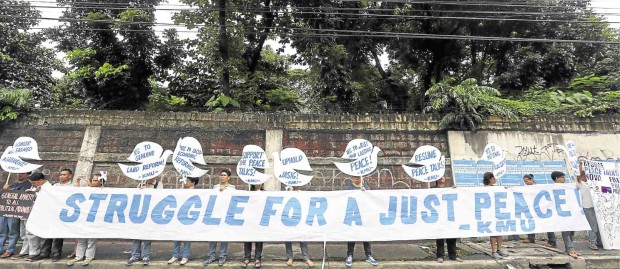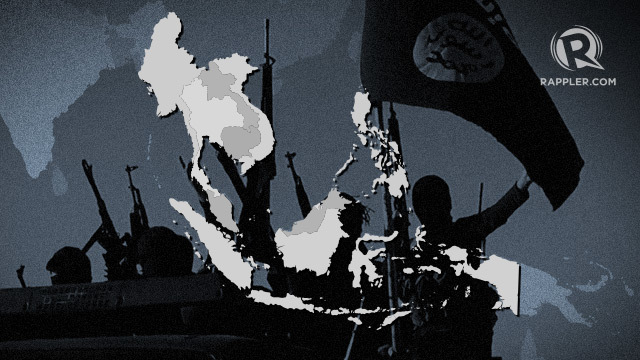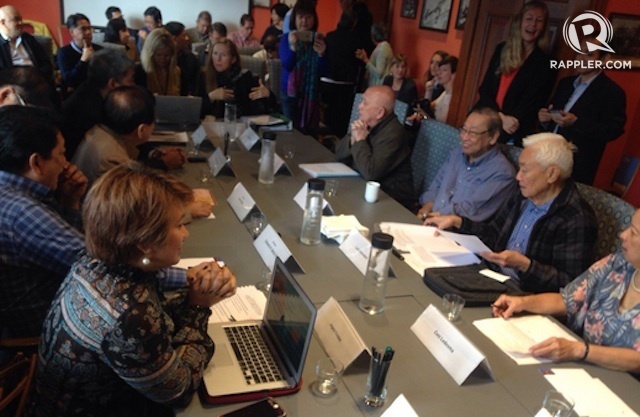
Indonesian President Joko Widodo (left) on a June visit to the Natuna Islands (Photo provided by Presidential Palace)
Southeast Asian nations are beefing up maritime security in the South China Sea as Beijing continues to assert its claims to contested areas, raising the specter of an arms race that could flare up tensions.
Indonesia plans to deploy five F-16 fighter jets and three to five naval frigates to the Natuna Islands as early as this year, a military official told The Nikkei. Indonesia is upgrading a military base in the South China Sea archipelago, building new runways and an expanded port due for completion by the end of 2017. Submarine deployment is planned as well. Purchasing additional fighters from Russia is also under consideration.
China claims Indonesia's exclusive economic zone surrounding the islands as part of its own traditional fishing grounds. Jakarta has become more sensitive to the presence of Chinese fishing boats and coast guard ships in the waters, leading to a provocative back-and-forth. President Joko Widodo visited the archipelago in June, only for a Chinese nuclear submarine to sail by a day later, for example.
Vietnam and the Philippines are also bolstering defense as territorial squabbles with China continue over as the Spratly Islands and other areas. Hanoi has purchased six Russian Kilo-class submarines since 2015 for deployment at Cam Ranh Bay, the navy's southern stronghold. Vietnam is now weighing introducing antisubmarine patrol aircraft as well, either with new P-3 planes or surplus P-3Cs from Japan's Maritime Self-Defense Force.
The U.S. military in June deployed four electronic warfare aircraft to Clark Air Base, north of the Philippine capital of Manila, in part to bolster maritime surveillance. Japan's MSDF has also sent submarines and warships to call on the port of Subic since spring.
China is thought to have deployed a number of submarines around the Spratly Islands and elsewhere. The Philippines' and Vietnam's expanded aerial and naval presence aims largely to counter that threat.
Even Singapore, which does not have territorial quarrels with China, agreed last December to let the U.S. deploy antisubmarine spy aircraft in the city state.
Deployments have since occurred once every three months, with keeping tabs on China's military presence the clear, if unstated, goal. U.S. Defense Secretary Ash Carter and Singapore counterpart Ng Eng Hen rode along on a patrol in June.
Nothing to do
China has largely shrugged off a July ruling by a United Nations-backed arbitration tribunal denying the country's sweeping claims over the area. Beijing has shown no signs of reining in activity, conducting large-scale troop exercises in the South China Sea.
The Association of Southeast Asian Nations and neighboring partners including China sought a peaceful solution to the issue at the ASEAN Regional Forum in July, but made little progress. Southeast Asian countries with smaller militaries have little choice but to bolster their defense presence.
Military expenditures in Asia and Oceania rose 5.4% from 2014 to 2015, compared to 1% globally, according to the Stockholm International Peace Research Institute.
Higher spending in countries such as Indonesia, Vietnam and the Philippines in light of greater leeriness toward China played a major role in that increase. Regional military outlays are seen climbing further in 2016 and beyond, potentially escalating the saber-rattling in the region.
http://asia.nikkei.com/Politics-Economy/International-Relations/Southeast-Asia-shores-up-maritime-defense-in-response-to-China?page=1



